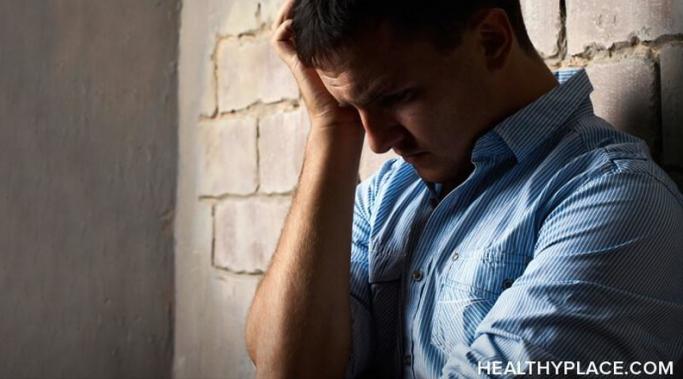Many people who struggle with having low self-esteem have done so for many years, perhaps for even most of their lives. When you suffer from low self-esteem for this long, you may wonder whether you will ever get rid of it and be able to view yourself in a positive light. Despite the time that has passed and your genuine efforts to build self-esteem, negative feelings about yourself may remain. Your inner critic may be a constant feature throughout your day or crop up during particularly stressful times in your life or major life events. Here, we will highlight what it’s like to feel hopeless about having low self-esteem and how you can combat this kind of despair to ensure that you move forward in your mental health journey.
Building Self Esteem
In the perfect world, things would go according to plan. We would achieve our weight-loss goal and feel amazing, fall in love and create the perfect relationship together, or start meditating and discover inner peace. But life is not linear–sometimes the steps we think will take us forward actually shift us to the side, or even backwards. This can happen with self-esteem. Though we achieve one of our goals, our self-confidence takes a sudden dip. Why does this happen? And what can we do to recalibrate?
When we socially isolate ourselves, our self-esteem suffers. Our social life helps us to build and maintain our self-esteem in so many important ways. Friends, family, partners, colleagues, acquaintances, strangers – all these people can help to boost our self-esteem when it’s low, as well as allow us to view ourselves in a more realistic, down-to-earth fashion. (Of course, people can have the opposite effect on our self-esteem, too, but it’s important to distance yourself from such toxic people.) When you don’t surround yourself with others on a regular basis, when you are socially isolated, your self-esteem can suffer. Here are the reasons why this can occur.
Baby steps are a great way to build self-esteem. It's kind of like climbing a mountain: From the distance, we see a simple shape. It looks easy enough to climb if we just start walking uphill. Yet the closer we get, the more we realize that what looked like a basic silhouette is actually filled with valleys, cliffs, detours, and falling rocks. Suddenly, we start to question ourselves. Where do we start? How much energy will it take? What happens if we get turned around? This is when we can turn to baby steps to build self-esteem. When we measure our progress in smaller increments, we have more opportunities to reflect on our progress and make sure we are headed in the right direction.
Getting diagnosed with a sexually transmitted infection (STI, once called a sexually transmitted disease or STD) can be a tough experience. An STI diagnosis can result in all sorts of intense emotions and feelings: shame, regret, self-blame, anger, depression, and anxiety. For many people, these feelings arise, not so much because of the physical issues linked to the STI, but because of the stigma associated with it. Due to the stigma linked to STIs, a lot of newly diagnosed people may also notice that their self-esteem drops – or even plummets. Here, we will take a look at how the stigmatization of STIs contributes to low self-esteem and what you can do about it if you’re experiencing this problem.
Mindfulness affects your self-esteem, and often, when we think about mindfulness, many of us picture a happy person meditating peacefully while the sounds of "ohm" echo in the background. Without our realizing it, this picture incepts a formula into our subconscious: mindfulness plus quiet serenity equals self-love. Yet for many of us, quiet serenity is not something easily check off on our to-do list–our days are filled with busy streets and office chairs, not Zen gardens and floor cushions. Does this mean self-love is unachievable? Not at all. Even when serenity is unavailable, one powerful tool we can use towards building self-esteem is mindfulness.
If you know someone who is struggling with low self-esteem, you may have many instinctive reactions about how best to help him or her. Also, when that person is someone you deeply care about, you may think that you have to go to a lot of extra effort to boost his or her self-esteem; which is understandable – it just shows you’re trying to be supportive. However, for someone who has low self-esteem, there are certain things you might say which – although said with positive intentions – can be quite unhelpful. In fact, certain comments can make that person feel worse about themselves. Here are some examples of things to avoid saying to someone with low self-esteem.
You might think relationships and self-esteem improve one another, and sometimes they do. But it's dangerous to rely on a relationship to boost your self-esteem. Here's why.
Bad habits--they're pesky little things, aren't they? I imagine just reading the phrase makes you picture one of yours. Maybe your bad habit is biting your nails, or not responding to texts, or leaving the dishes in the sink. It's the thing you do that deep down, you know you don't like. But sometimes our bad habits aren't just small annoyances. Sometimes they burrow into our identity and affect our ability to build self-esteem. When bad habits affect self-esteem, what do we do?
A toxic boss affects your self-esteem because, for many people, the workplace is a large area of their lives that affects their self-esteem. When you work in a healthy work environment, this can give you opportunities to build your self-esteem. If, on the other hand, you find yourself spending five days a week working with a toxic boss who tries to bring you down, then you may find yourself plagued by self-doubt and self-criticism. One of the most difficult things you might encounter in your career path is a bad boss – the kind of toxic boss who you dread seeing each day because you know those encounters will dampen your mood and hurt your self-confidence. If you’re worried that your boss is undermining your self-esteem, look out for the following tell-tale signs.









